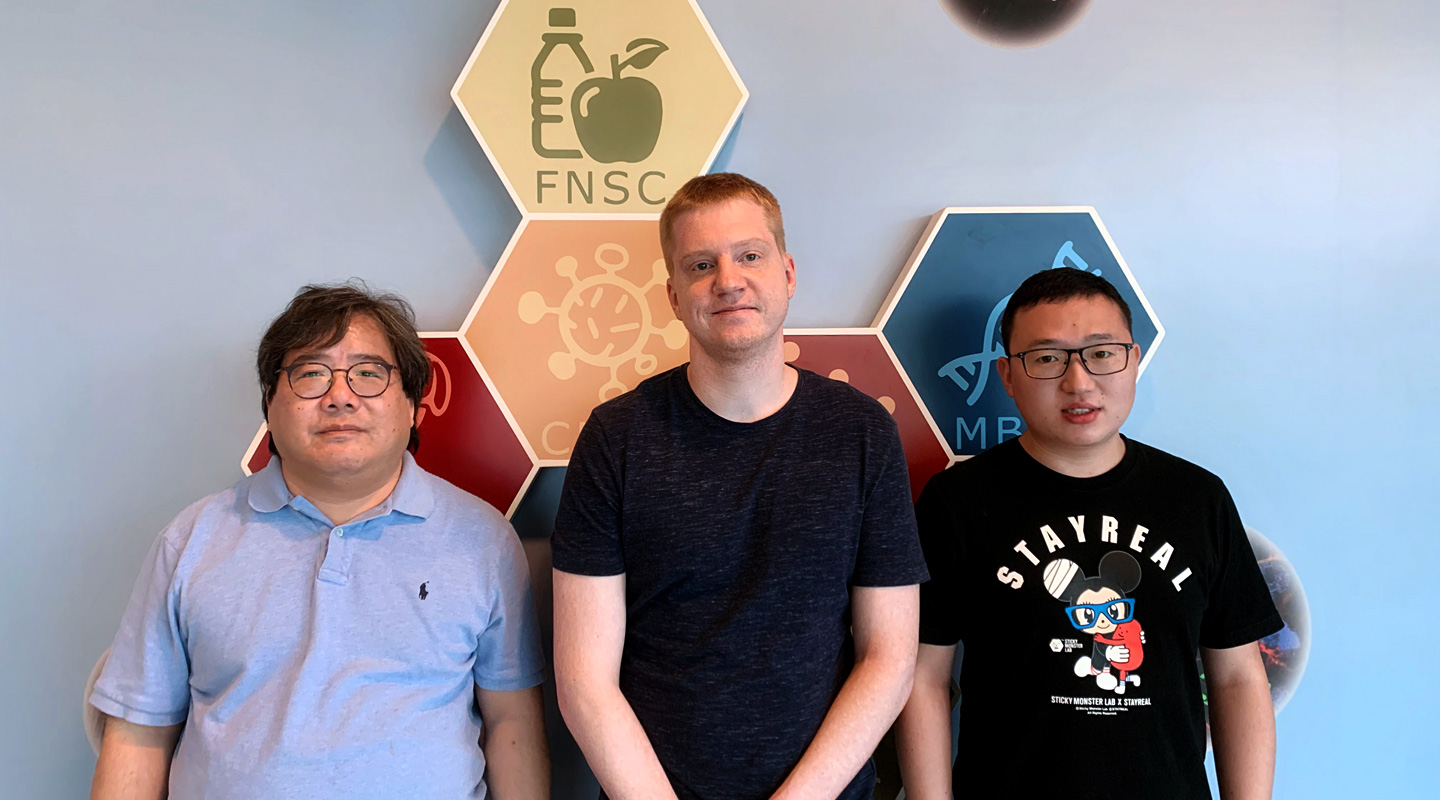Dear readers, With the launch of e-newsletter CUHK in Focus, CUHKUPDates has retired and this site will no longer be updated. To stay abreast of the University’s latest news, please go to https://focus.cuhk.edu.hk. Thank you.
Biodiesel from Bacteria

Fossil fuels like coal and petroleum have been responsible for greenhouse gas emissions and pollutions of all sorts. While cleaner fuels look set to lead the way, their very cleanliness remains questionable, as their production is nothing short of polluting. A research team led by Prof. Michael Chan (left) of the School of Life Sciences developed a handy way to extract enzymes from bacteria, which enables more eco-friendly production of biodiesel and lowers the cost while enhancing the enzyme’s stability. It will help popularize biofuel as a clean, effective substitute for its fossil forebears.
Present in all living beings, enzymes are small engines driving various life-sustaining chemical processes, such as digestion and respiration. They are also used to produce drugs and other daily chemicals, such as biodiesel. Compared to the traditional method of making use of vegetable oil or animal fats and methanol in the presence of a base catalyst, the use of enzyme in catalysing and producing biodiesel is less exacting on the environment. Yet enzyme is yet to see wide adoption as it is too expensive, and requires tedious purifications and immobilization to be reused.
To overcome these hurdles, Prof. Chan’s team placed a protein named Cry3Aa and an enzyme into the bacteria Bacillus thuringiensis. Spectacularly, the multiplying proteins would form themselves into crystals, which contain pores large enough to accommodate enzymes that now number in millions. One can get hold of the enzymes simply by isolating the crystals. Moreover, the trapping of enzymes inside the Cry3Aa crystals makes the former much more stable, allowing them to go through multiple cycles of biodiesel production from waste cooking oil.
Dr. Bradley Heater (middle), lead author of the paper detailing the research, said, ‘the real elegance of this technology is that the bacteria cells do all the hard work of producing the catalyst—all we have to do is separate the crystals from the cell debris.’ The clever crystallizing method could theoretically trap other enzymes to perform different chemistry. As such, the team is exploring ways to generate other catalysts for the production of biofuels and everyday chemicals.